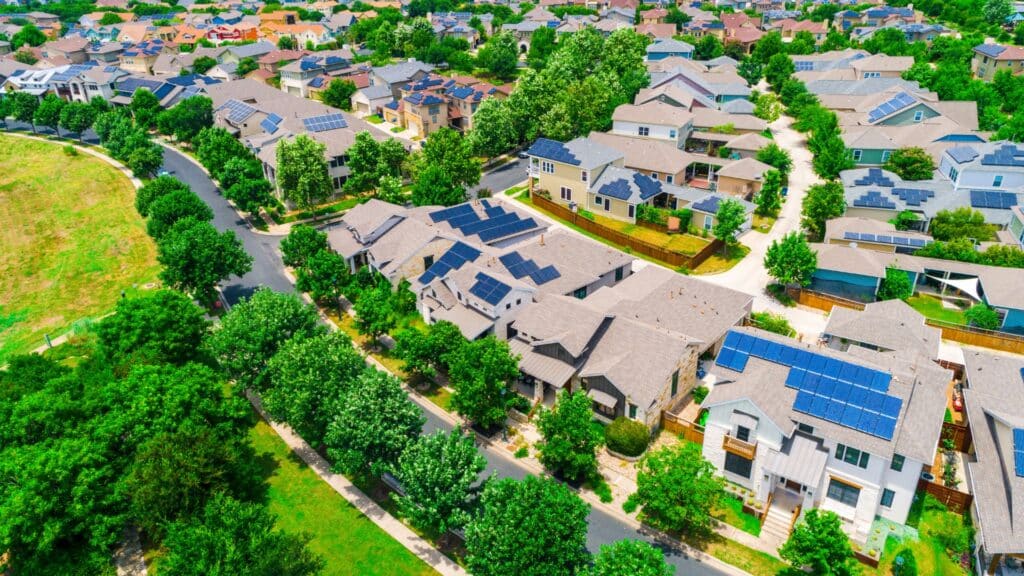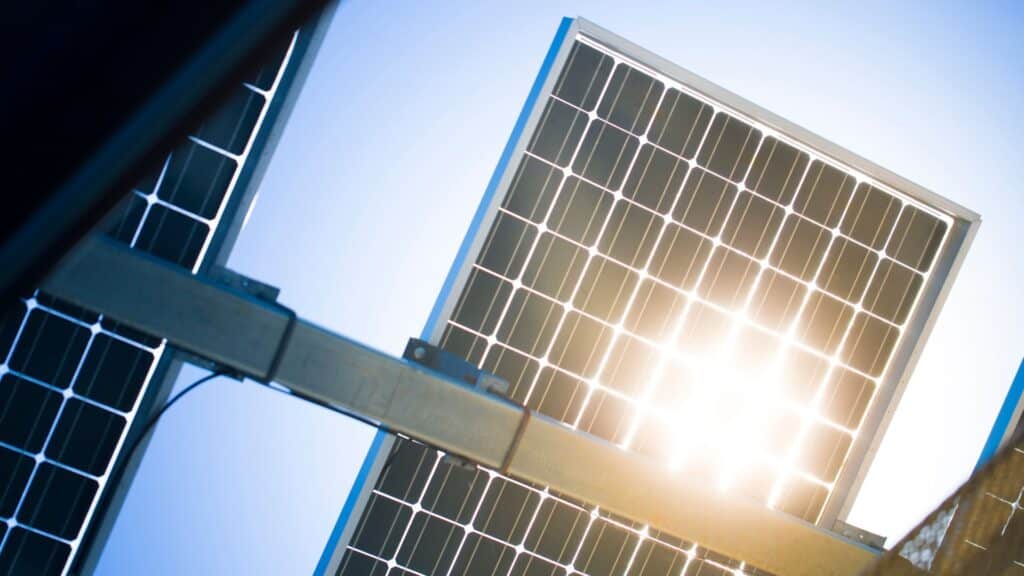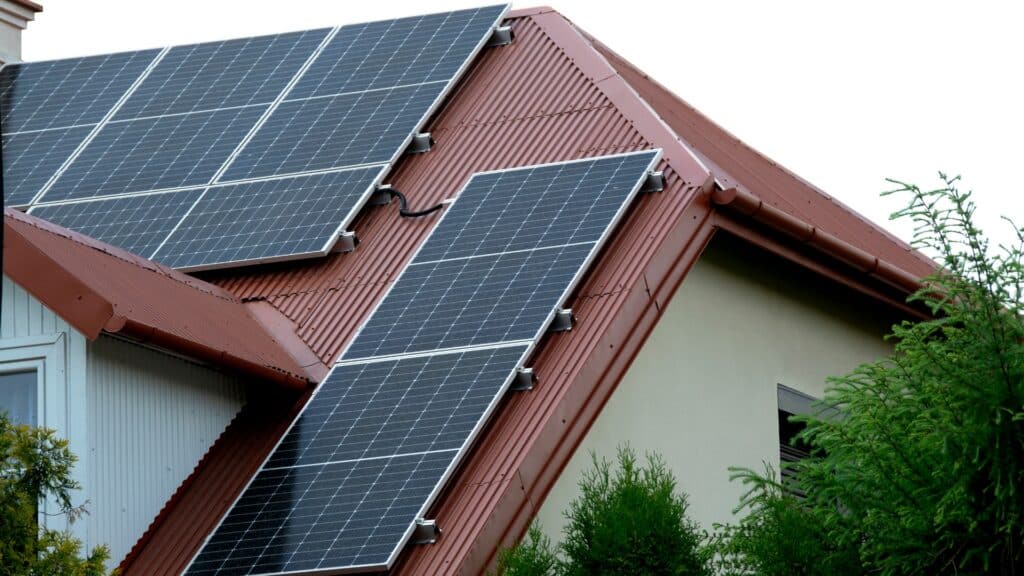As a business owner, you are constantly looking for ways to optimize your expenses and maximize your profits. Have you considered commercial solar? With Schoenherr Solar, investing in commercial solar panels can be a game-changer for your business, not only by reducing your energy costs but also by making your company socially responsible. Let’s explore the benefits of commercial solar for businesses, the different types of commercial solar systems available, and the steps to install them. We will also delve into financing options like rebates, tax credits, and other incentives that can help fund your project.
Understanding Commercial Solar
Harnessing solar energy through panels converts it to electricity, reducing carbon footprint and energy costs while providing clean energy solutions. Commercial solar systems efficiently produce energy, benefiting the bottom line and maximizing tax credits and incentives. Although an upfront investment is required, the long-term savings are substantial. Exploring solar installation can significantly reduce the electric meter readings, making it the only place where businesses can generate this much energy sustainably.
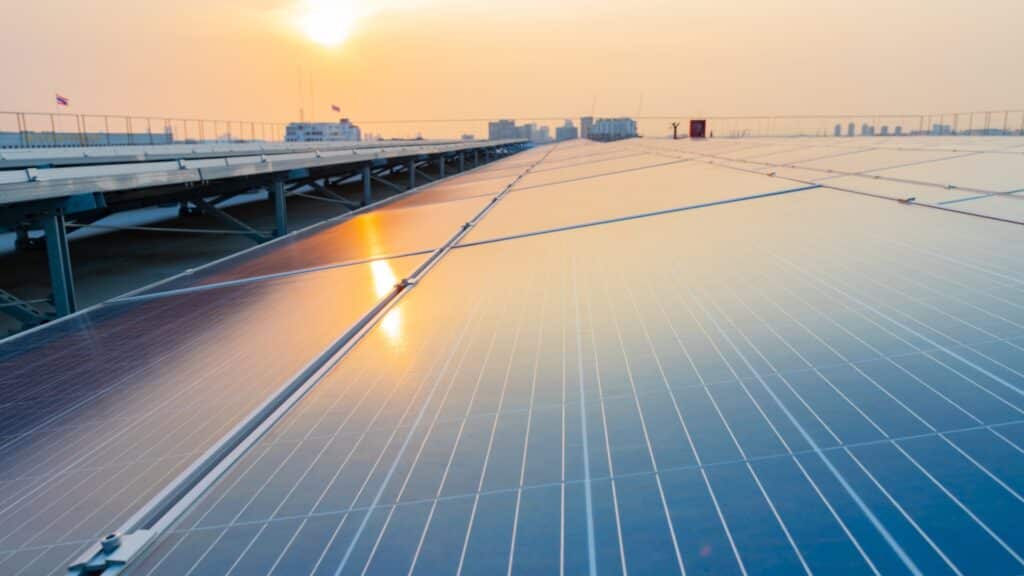
What is Commercial Solar?
Commercial solar refers to the use of solar panels to generate electricity for commercial purposes. By converting solar energy into usable electricity, businesses can lower their utility bills and even sell excess power back to the grid through net metering. This cost-effective and renewable energy solution helps businesses become more energy-independent.
The Shift Toward Solar in Businesses
Business owners are increasingly embracing solar energy to reduce operating costs and enhance sustainability. The installation of solar panel systems enables substantial savings on electricity bills, offering businesses greater control over energy production. By leveraging commercial solar solutions, companies can significantly improve energy efficiency and realize long-term financial benefits while contributing to a greener environment. Embracing solar power represents a pivotal shift in the way businesses manage energy consumption, making it the only place to invest in a sustainable and cost-effective energy future.
Benefits of Commercial Solar for Businesses
Lowering operational expenses using solar energy systems leads to substantial savings for businesses. Solar energy incentives, rebates, and tax credits help reduce system costs. Accelerated depreciation enables businesses to recover solar investment costs more quickly. Commercial solar panels are dependable, robust, and require minimal maintenance. Additionally, solar batteries can store excess energy, providing energy solutions for commercial customers. Together, these benefits make commercial solar a cost-effective and reliable energy solution for businesses.
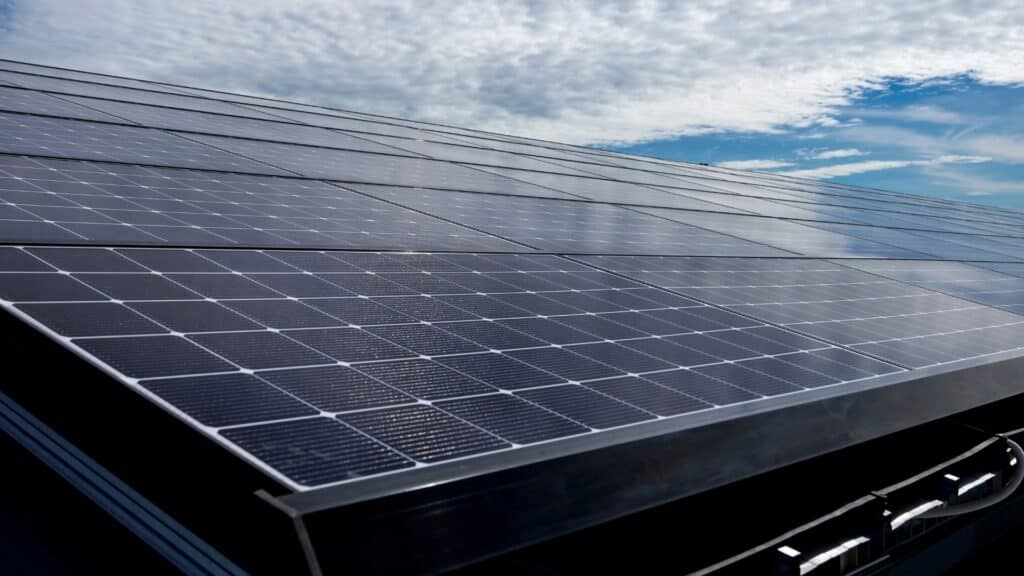
Lower Operating Costs
Maximizing energy efficiency through commercial solar installation reduces electricity costs and positively impacts the bottom line of businesses. By minimizing dependence on utility rates, businesses can achieve consistent energy production, resulting in long-term savings. Additionally, solar panels for commercial applications offer free estimate incentives, further contributing to lower operating costs. This shift towards sustainable energy solutions not only saves money but also benefits the environment, making it the only place to invest in for a greener future.
Government Rebates/Credits
Businesses stand to gain from a variety of federal incentives, state rebates, and the solar investment tax credit, enhancing their saving potential. Solar companies are well-equipped to guide businesses through the labyrinth of rebate incentives and government agencies. Commercial building solar projects could be eligible for enticing rebate incentives. The utilization of solar panel systems enables businesses to claim tax credits, effectively offsetting system costs. Installing solar can provide businesses with valuable information on available rebates and incentives, empowering them to make informed decisions.
Accelerated Depreciation
Utilizing accelerated depreciation for commercial solar investments significantly impacts the overall solar panel cost, enabling businesses to reduce taxable income more swiftly. This strategic approach enhances cash flow, effectively making the adoption of solar systems not just environmentally responsible but also financially advantageous. In the long run, this method helps lower the total cost associated with solar energy infrastructure, presenting an attractive option for businesses aiming to balance sustainability with economic efficiency.
Types of Commercial Solar Systems
Exploring the numerous options for commercial solar can help businesses find the perfect fit. Solar energy companies have the expertise to design panels tailored to specific energy needs, be it for residential use, flat roofs, or industrial facilities. These panels come in varying price ranges and power levels, catering to different business types. Additionally, solar farms and solar rooftop installation can provide extra energy, maximizing cost savings for commercial applications. Businesses should consider these options to harness the only place: much energy from commercial solar.
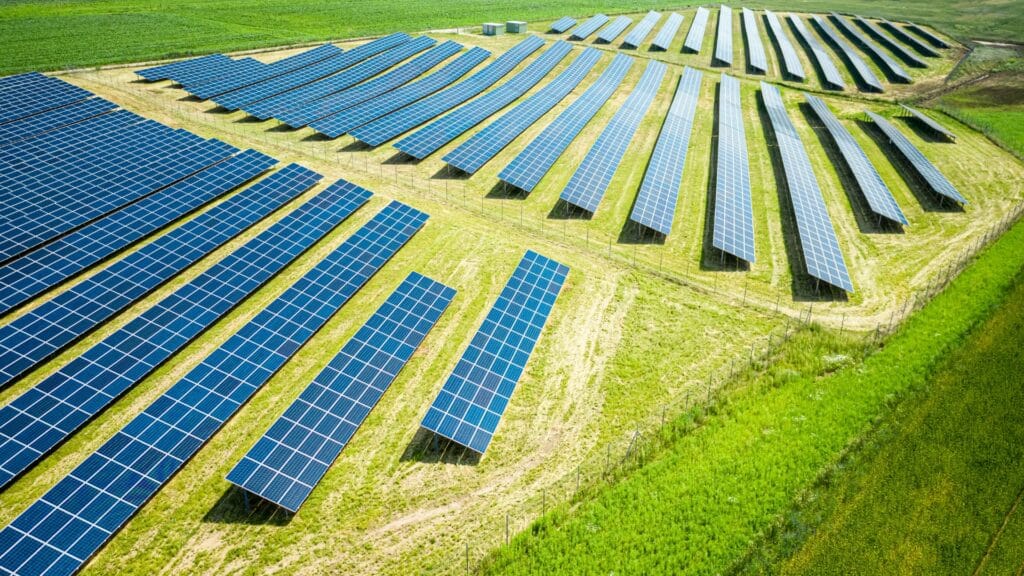
Exploring Different Commercial Solar Options
When considering commercial solar options, it’s essential to engage with experienced solar companies to design a system for optimal energy production. Tailoring the system to suit different types of buildings and accommodating a range of energy production options is crucial. Additionally, exploring various solar array installations, such as flat roofs or industrial facility systems, can meet specific needs and maximize cost savings for businesses, ultimately reducing utility bills and energizing their bottom line.
Factors to Consider When Choosing Solar Systems
When selecting solar systems for commercial use, it’s essential to ensure that they align with the energy needs and budget. Consider crucial factors such as solar cells, energy storage, and excess power to maximize energy production. Additionally, evaluate system designs recommended by solar installation companies for optimal performance. Key considerations include system cost, utility bills, and energy efficiency, tailored to different types of commercial buildings’ energy requirements. Assessing these factors will help businesses make informed decisions when choosing the right commercial solar system.
Steps to Install Commercial Solar Panels
Embarking on the journey of commercial solar installation involves distinct phases. Initially, businesses assess their energy requirements, system design, and utility costs to ensure the project’s feasibility. This is followed by acquiring a free estimate and space analysis for the solar array. The installation phase demands an understanding of solar panel types and their energy output, coupled with a financial analysis. Post-installation, the solar system aids in sustainable energy production and enables net metering, managing excess power effectively. The installation phases are:
- Pre-Installation:
- Evaluate energy needs, system design, and utility rates.
- Understand upfront costs, system design specifics, and installation requirements.
- Installation Initiation:
- Obtain a free estimate.
- Analyze energy needs and available space for the solar panel array.
- Installation Process:
- Understand different types of solar panels and their energy production capacity.
- Conduct cash flow analysis to assess financial benefits.
- Post-Installation:
- Solar panels contribute to energy production and sustainability.
- Net metering allows for management and compensation of excess power generation.
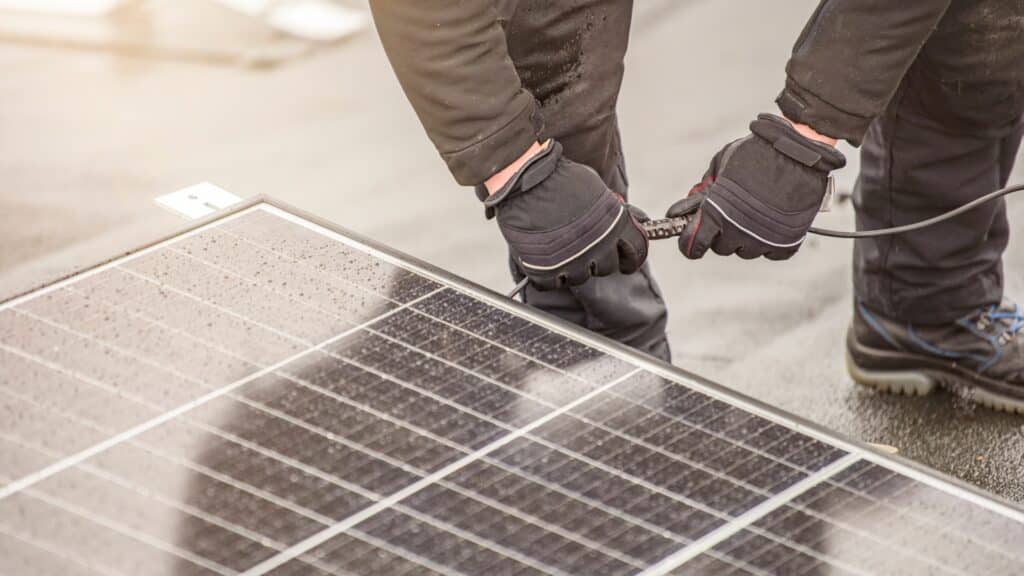
Pre-Installation Considerations
Before installing commercial solar panels, it’s important to evaluate energy needs, available space, and state rebates. Understanding energy costs, solar energy systems, and federal incentives is crucial. Solar companies can provide insights into system design, energy efficiency, and excess power generation at a commercial facility. Assessing commercial solar system costs, utility rates, and commercial applications is essential. It’s integral to evaluate commercial projects, solar electric systems, and commercial solar installation for pre-installation considerations.
Installation Process Overview
Facilitating an overview of the installation process, solar companies ensure seamless and cost-effective solar panel installation. Commercial solar installation entails system design, considerations for flat roofs, and optimizing energy efficiency at the facility. Crucial to the process is understanding system cost, solar electric systems, and energy requirements. Businesses benefit from guidance on installing solar panels on office buildings and industrial facilities. This includes understanding energy production and utility rates, and ensuring alignment with energy needs and space availability.
Frequently Asked Questions
How can commercial solar help businesses save money on energy costs?
Commercial solar offers a cost-effective solution for businesses to reduce energy expenses. By generating their own electricity, businesses can significantly lower their energy costs. Additionally, the long lifespan and minimal maintenance of solar panels contribute to further savings. Tax incentives and rebates for installing solar panels also provide financial benefits for businesses.
How long does it typically take for a business to see a return on investment from installing commercial solar?
Typically, the timeline for a business to see a return on investment from commercial solar varies based on factors like system size and electricity usage. On average, businesses can expect to see a return within 3-7 years, after which they can enjoy significant cost savings on energy bills.
What factors should be considered when determining if commercial solar is right for a particular business?
Factors to consider when determining if commercial solar is right for a business include the electricity usage and cost per kWh, available space for panels, local incentives and rebates, and long-term financial goals. Assessing these factors can help businesses make an informed decision about adopting commercial solar.
Are there any government incentives or tax credits for installing commercial solar?
Government incentives and tax credits are available for installing commercial solar. The federal Investment Tax Credit (ITC) offers a 26% tax credit for eligible solar projects. Additionally, some states provide grants or rebates for commercial solar installations. Researching and understanding these incentives is crucial before investing in commercial solar.
How can switching to solar energy positively impact a business’s reputation and brand image?
Switching to solar energy demonstrates a commitment to sustainability, reducing a business’s carbon footprint. This can attract and retain customers who value environmentally responsible practices. Moreover, it sets the business apart from competitors and enhances its reputation and brand image when highlighted in marketing materials.
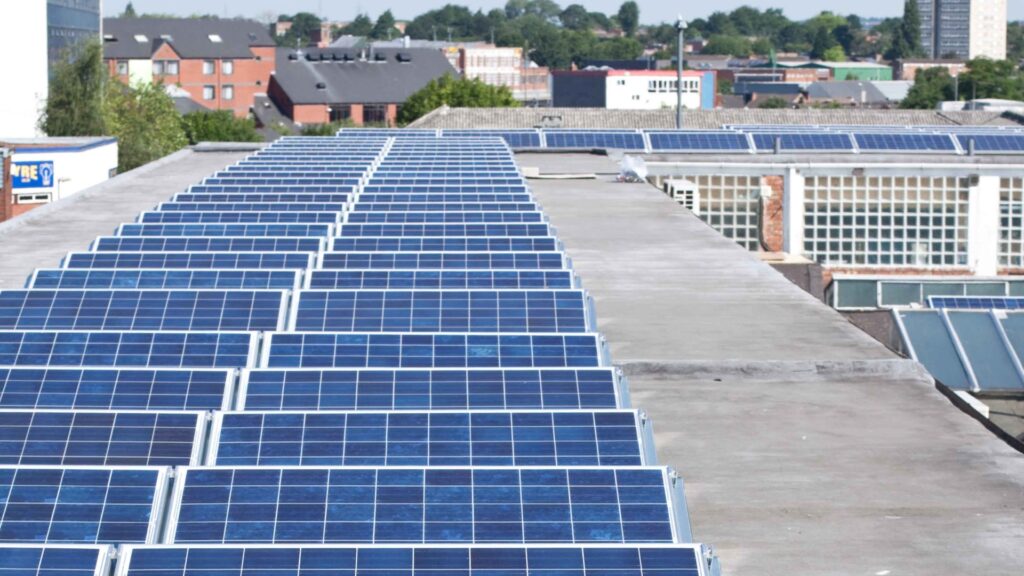
A Smart Move for Your Business and the Environment
Commercial solar is a sustainable and cost-effective solution for businesses looking to maximize their savings. By harnessing the power of the sun, businesses can significantly reduce their operating costs and take advantage of government rebates and credits. The installation process may seem daunting, but with the right considerations and financing options, it can be a smooth transition. So, if you’re wondering whether your company is right for solar, don’t hesitate to get in touch with us. Our experts will guide you through the process and help you energize your bottom line while making a positive impact on the environment.

